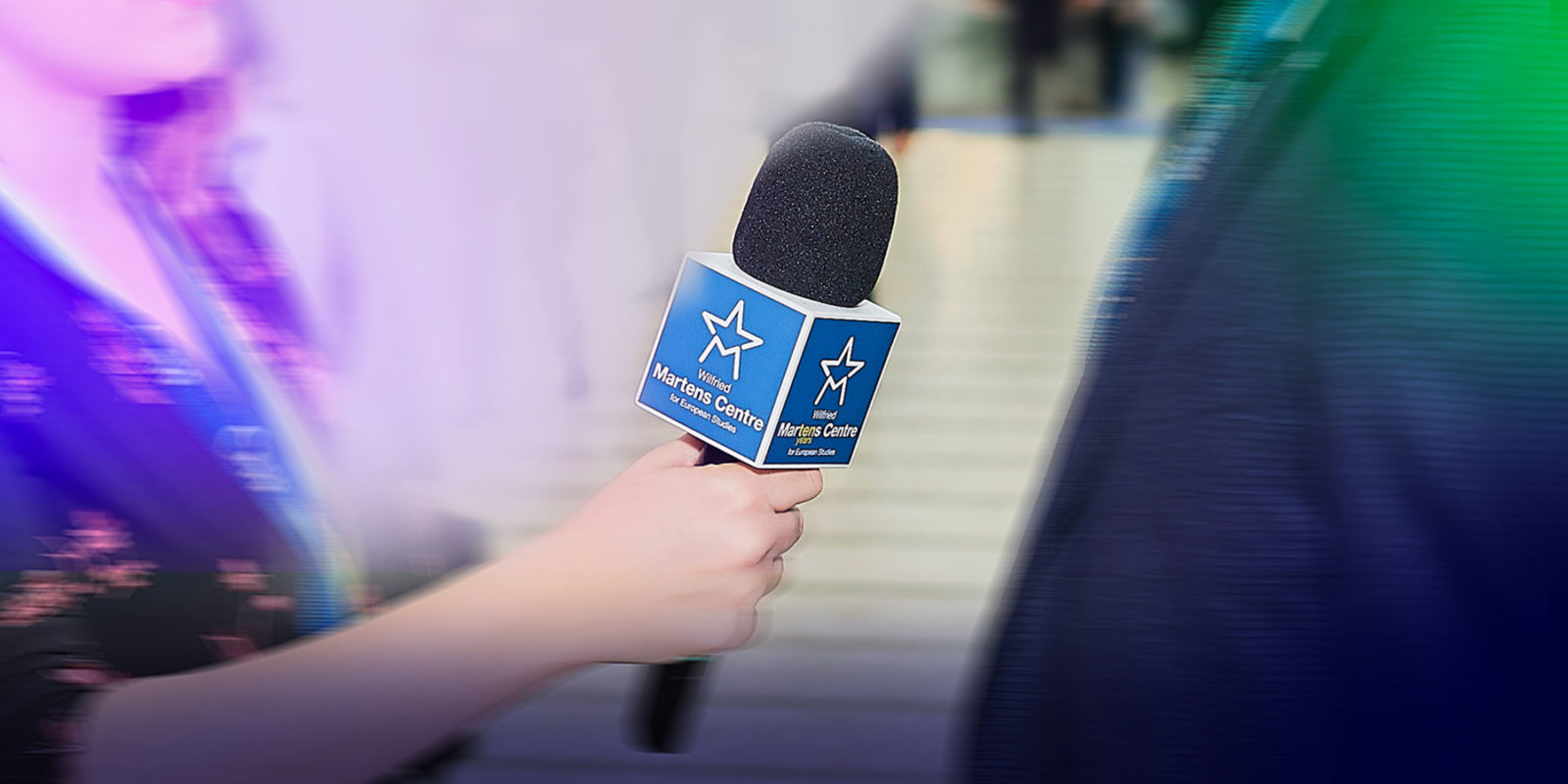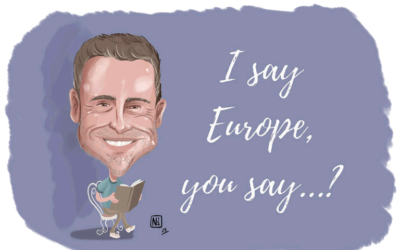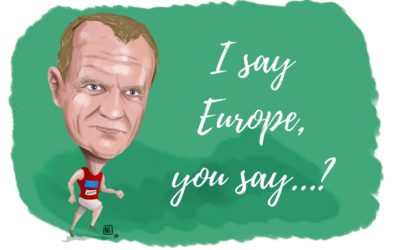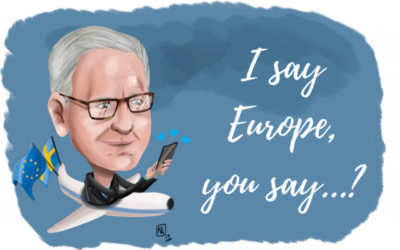I say Europe, you say…? Interview with Antonio Tajani
27 December 2021
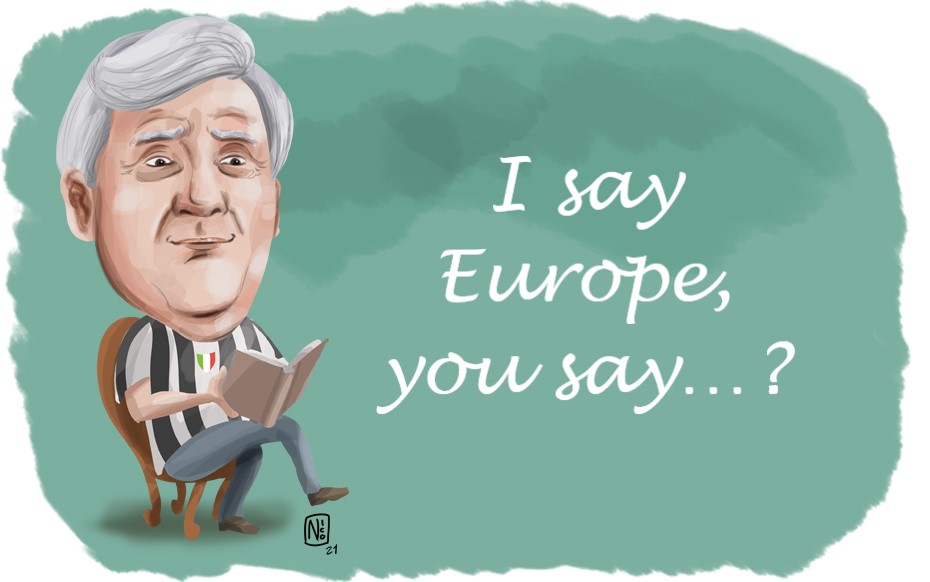
I say Europe, you say?
Europe represents my values, my traditions. It is the cradle of freedom. As a Member of the European Parliament, Commissioner and Vice-President of the European Commission, and President of the European Parliament, I have dedicated my entire political career to creating a better Union for families, citizens and businesses. In 27 years, I have done everything possible to strengthen the EU integration process. This is my home, my roots, both personal and cultural. Today, for me, Europe is still the place of my dreams and ambitions.
In your opinion, what has been Europe’s greatest strength during this Corona crisis?
We were able to recover our core values, such as solidarity. This crisis is not caused by mismanagement or mistakes of a National Government. It is an unprecedented health and economic crisis. We were able to find new tools to face this new challenge. In this, the EPP has played a crucial role.
And what are the most important elements to guarantee a solid recovery for the continent?
We are still in the middle of the crisis. If we want a solid recovery, we must take into account the specific needs of our citizens and territories. Italian SMEs do not have the same problems as German ones. Polish workers have different problems than Spanish fishermen. The European Union must provide solutions for everybody.
Some member states -among them Italy- are in desperate need of a touristic ‘back to business’. Do you think the vaccination passport will be enough to relaunch it?
Covid Pass was a first tool to go back to normality, to travel without restrictions, quarantines and without risks to our health. It was a first step in the right direction. Now, we have to support the SMEs in the sector. It is also necessary to continue with the vaccination campaign. Variants will continue to exist: we can no longer afford a multi-speed Europe on vaccines. An important communication strategy is necessary to convince the most doubting citizens, also fighting disinformation. Just compare the data from last year, when we did not have vaccines and those from this year. Even with the same number of cases, there are far less hospitalizations, fewer ICU patients and fewer deaths. It’s a sign that the virus is difficult to defeat, but that vaccines are the solution.
Migrant movements are growing back in the Mediterranean, and elsewhere. What can Europe do to respond in a coordinated way to what is happening to Spain, Greece, Malta, or Italy?
Migration does not concern only Italy, Spain, Greece or Malta. It is a European matter and it must be resolved at a European level. We need a strong European strategy and a revision of the current regulation. We know that the causes of migration are poverty, diseases and climate change. This is why I have suggested a European plan for Africa. We must invest in the continent, bringing the European way of life, businesses and their expertise. By doing so, Africans would have the adequate tools to create wealth and well-being in their countries. This way can we face this epochal challenge. We must face reality: in 2050, there will be 2.5 billion African citizens. We cannot think that they will stop striving for a better life. We must help them grow and support them: their well-being concerns us all. A European approach is needed.
And on the opposite shores of the Atlantic, a new US Administration promises to relaunch the transatlantic relation. How do we, Europeans, can play our part to make it happen?
The new US administration has been a breath of fresh air in transatlantic relations. The duties have been suspended. The European Union must work to strengthen relations with the United States. We share the same values, the same history and we must also share the future. They are our fundamental partners in global challenges: technology, development, defence, security, and environment. We must work on a common foreign agenda and a common diplomacy. From Russia to Venezuela, from China to Belarus, European and US interests coincide. To have a geopolitically strong European Commission, as Ursula von der Leyen said, we need to start from a strong partnership with the United States. In this sense, the European Commission’s initiative to invest 300 billion euros in developing countries goes in the right direction. Bringing our know-how, our companies’ skills and our universities’ knowledge in particular to Latin America and Africa will allow them to grow and give new outlets to European companies, thus, creating employment.
The pandemic has increased virtual connections across the world but has drastically reduced social contacts and physical travels. What have you missed the most during the past year, and how will the ‘new normality’ look like?
The term “Parliament” comes from the French word “Parlement” which comes from the word “speak”. The European Parliament needs to speak, to debate. This year, I missed face-to-face discussions with my colleagues, with EP officials and civil servants and with other institutions. You cannot have these interpersonal exchanges in front of a screen. Negotiations are the basis of our work. Current remote working conditions, even when they are necessary, can cause problems in the medium and long term. We all need to think carefully about how to handle this “new normality”.
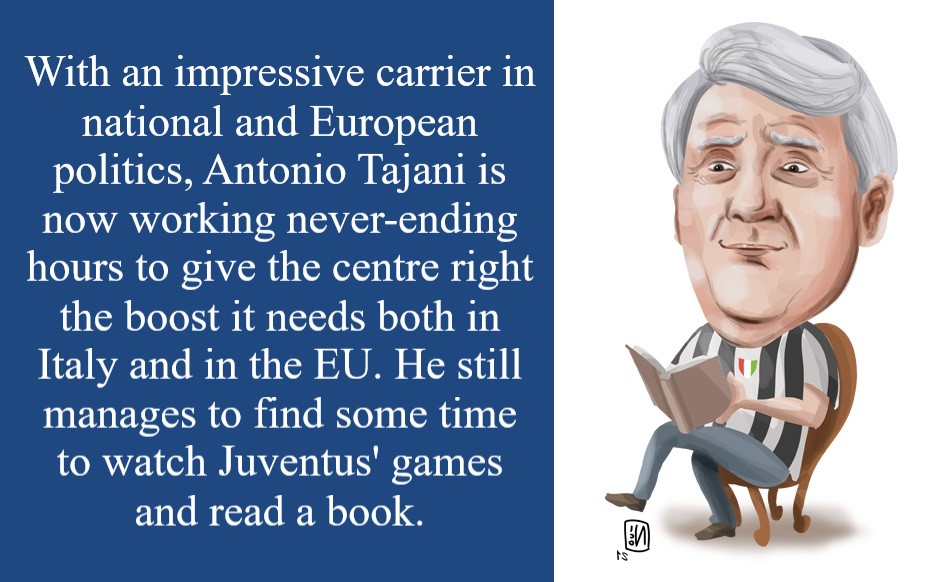
You are known as a voracious reader; a book recommendation for our audience?
“Demeure” by my friend and colleague François-Xavier Bellamy. It is a precious book, an invitation to think. As the author writes: “our world has made movement a universal imperative. And if life is evolution, if the economy is growth, if politics is progress, then everything that does not transform must disappear “. Excellent thoughts on the inner fatigue that the Western world suffers from. It well describes the challenge that the rapid evolution of technological innovations represents for the politics of the near future. It is essential to reflect on the need for stability that everyone has. We need a home, a place to live where we can find ourselves, a place that becomes familiar, a fixed point, a certain reference in a world that is constantly changing.
Next months are expected to be very intense politically in Italy. Will Draghi’s government hold together?
Mario Draghi is doing an excellent job for the citizens and for the Italian economy. As an Italian, I think we should thank him for his work in such a difficult time. I expect his government to last until the end of the legislature (spring 2023). As I said, we must give Italy stability. It is an unprecedented moment, just like Covid is an unprecedented crisis. For this reason, the most important political parties have put the interest of our country on top of the priorities. It’s like in football: we’re not playing for Serie A, supporting our favourite teams. We are playing for the whole Nation: we are all wearing our national team jersey. This is what we need to do now. Later, when the situation will be better, we will return to our coalition and the traditional political framework: centre-right against the left. Today, for the centre-right, being part of Mario Draghi’s government means realizing our political priorities in the interest of families and businesses.
Then, we will face the second half of the European legislature, and the EPP will take back the Parliament’s presidency. Based on your experience and the current circumstances, what should the EPP Group and the Parliament focus on the most for these next two and a half years?
The EPP is ready. First of all, we have an excellent candidate for the Presidency of the European Parliament. Roberta Metsola is a capable and determined young woman who has done a great job for Europeans in her role as MEP. And as Deputy Vice President of the European Parliament, she showed a strong sense of institutions, balance and the ability to synthesize between different sensitivities. It is a strong signal: our political family have the skills and the people to relaunch the European project.
Our priority must be an economic recovery. At the same time, we must be ready to face new challenges, especially health. That is why I fully agree with our group’s proposal to create a European research centre, under the name of Marie Skłodowska-Curie. It will be the place where the best European research and the best researchers can work together to help our citizens. We must not only fight against the pandemic but also against cancer and chronic diseases. We can make a difference for our citizens.
The EPP is preparing for its upcoming Congress in the Netherlands. What are the biggest challenges and priorities for our political family in these new ‘Roaring Twenties’?
As President of the Committee on Constitutional Affairs, I believe that our priority must be having a European Parliament with full legislative and budgetary powers and the direct election of the President of the European Commission by the citizens. This will help bring our institutions closer to citizens. The EU should create its own army, complementary to the national forces, acting within the framework of NATO. A new defence commissioner should also be created.
Job creation must be our top priority, especially for the new generations. To do this, we need to support industry and SMEs. We need a strong industrial strategy. We need to invest in agriculture, industry, SMEs, research and health.
Businesses need a clear legal framework, easy access to credit and raw materials. In other words, all our policies, from energy to climate, from research to fiscal policy, must boost a new industrial renaissance. To lead the digital revolution and the green transition, we need to invest in vocational education and training.
We need new competition rules if we want to compete with the economic giants of China, the United States, Russia, India and Great Britain, even on a technological level.
In other words: I would like an EPP capable of leading the integration process into the future, as we have always done in the past. It is our historical role. We must follow the path designed by our founding fathers.
In our latest I say Europe, you say… EPP President Donald Tusk proposed we ask you how can a moderate centre-right be rebuilt in Italy?
Forza Italia is working in this direction every day. President Silvio Berlusconi is committed to rebuilding a solid, credible and pro-European coalition. We know our role and our responsibilities. We want the best for our country and for Europe. In this, we know that we are fundamental. In Italy, a centre-right coalition exists only with us. We are working hard to make our party grow in Brussels and in Italy. The latest polls show that Italian citizens are appreciating our commitment. This gives us even more strength to continue. For example, we were the only national party that presented its own national recovery and resilience plan and its own vaccination plan. I must admit that Draghi has integrated most of our proposals into his government decisions.
We could not forget asking about Calcio; congrats on Juve’s win on the Italian Cup last summer, but how does it feel to see La Vecchia Signora not winning or leading La Serie A as usual?
Unfortunately, after 9 consecutive years, we are facing many difficulties. It is a phase. I hope that with hard work we will come out of it as soon as possible. Wearing the black and white shirt means, as Giampiero Boniperti, for many years President of Juventus and former EPP MEP, said: “Winning is not important, it is the only thing that matters”.
Finally, which EPP and network colleague would you nominate for our next interview, and what would be the questions that you would ask?
My friend Pablo Casado, who, just like Roberta Metsola, is the proof that the EPP has a young and well-prepared leadership to lead Europe and the Member States. I would like to ask him: how is the PP preparing for the 2023 elections in Spain?
I say Europe, you say…? is a series of candid interviews with centre-right movers and shakers of the European project. From legislative work to food preferences, from weekday causes to weekend hobbies, we show you the human face of EU politics and its main protagonists.

